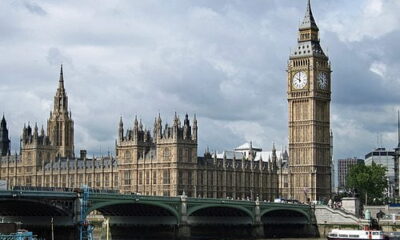

Energy
Scotland’s First Minister demands Whitehall “respect” for renewable energy
Scotland’s First Minister Nicola Sturgeon is using her increased political muscle to fight the corner of the Scottish renewable energy industry in the wake of planned subsidy cuts.
The SNP leader has written to Prime Minister David Cameron to demand “respect” for her nation’s world-leading position on the development of clean energy. In her 700-word letter, the First Minister outlined her concern at the UK Government’s decision to end the Renewables Obligation early to highlight the impact on business and investor confidence north of the border.
She also called on the PM to ensure that all planned onshore wind projects at any stage in the planning system remain eligible for subsidy support.
The full text of the First Minister’s letter:
Dear David
Thank you for your recent response to my letter of 18 June concerning support for onshore wind projects under the Renewables Obligation.
Your response touched on the grace periods proposed by the Secretary of State for Energy to apply following the UK Government’s early removal of previously planned support for onshore wind power under the RO.
As you know, your government’s proposed change in policy on support for onshore wind will have a disproportionate impact on Scotland with 70 per cent of affected developments located here. This comes despite the Scottish Government’s support for the onshore wind sector proving popular at successive elections in Scotland, and your plans proving unpopular. Indeed DECC’s own polling shows support for onshore wind at 71 per cent.
Given the disproportionate impact of your new policy on Scotland, I ask that with regard to the grace period for developments in Scotland you take a flexible approach and ensure that all planned projects at any stage in the planning system remain eligible.
I want also to highlight the impact on business and investor confidence, and the comments made by the CBI regarding grace periods. As you will be aware the CBI has made clear its concern stating: “Cutting the Renewables Obligation scheme early sends a worrying signal about the stability of the UK’s energy policy framework. This is a blow, not just to the industry, and could damage our reputation as a good place to invest in energy infrastructure.” With reference to grace periods, the CBI says: “It is right that an appropriate grace period is put in place to account for projects where significant investments have already been made. The Government must now work closely with industry to get the details right.”
Given your party has traditionally prided itself on being supportive of business; it is concerning that you are taking such an anti-business approach on this issue.
I also wish to stress my concern about the implications of the policy for UK leadership on climate change at this year’s crucial UN talks in Paris. So far this year you have spoken out on climate change pledging “to accelerate the transition to a competitive, energy efficient low carbon economy”. You have also indicated “It is in our national interest to act and ensure others act with us” and you have spoken of the need to get the private sector involved, saying: “The UK is already playing its part, but we need to do more to get the private sector involved, fostering research and innovation into new clean energies, and supporting growth and jobs”.
However your government’s decision to cut planned support for clean green renewable energy could not come at a worse time given the forthcoming climate talks and shows a complete lack of leadership on climate change. It sets an extremely bad example to other countries, will put at risk Scotland’s renewable energy targets, and also runs counter to your manifesto commitment to “cut emissions as cost-effectively as possible”. A flexible approach to grace periods in Scotland would at least show understanding of the need to provide leadership on low carbon energy in the run up to the Paris talks.
The narrowing of electricity capacity margins to as low as zero, highlighted by both National Grid and Ofgem in the last week, makes clear that, from a security of supply perspective, now is not the time to halt planned energy developments that can help keep the lights on across these islands. This yet again strengthens the need to allow Scottish developments to proceed.
I ask that you consider the points above and show respect for Scotland’s position as a world leader in low carbon energy by ensuring maximum flexibility in the grace period in Scotland.
Finally, I note that your government has now postponed an announcement on Contracts for Difference until the autumn despite previous commitments to publish budget information and strike prices this month. This unwarranted delay compounds the uncertainty hanging over the entire renewables sector and will further erode investor confidence in the UK energy market. I seek your reassurance that both the Scottish Government and the renewables industry is properly consulted in advance of any policy changes.
NICOLA STURGEON


 Environment12 months ago
Environment12 months agoAre Polymer Banknotes: an Eco-Friendly Trend or a Groundswell?

 Features11 months ago
Features11 months agoEco-Friendly Cryptocurrencies: Sustainable Investment Choices

 Features12 months ago
Features12 months agoEco-Friendly Crypto Traders Must Find the Right Exchange

 Energy11 months ago
Energy11 months agoThe Growing Role of Solar Panels in Ireland’s Energy Future





























